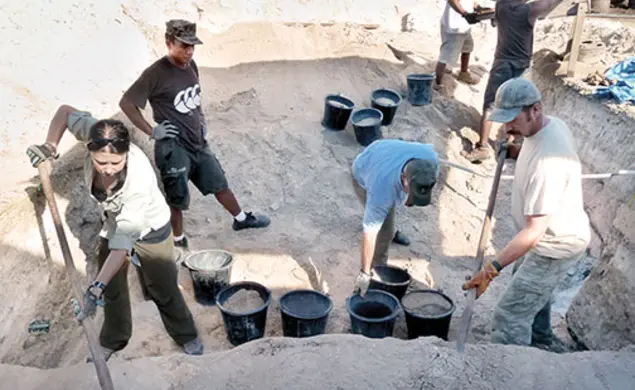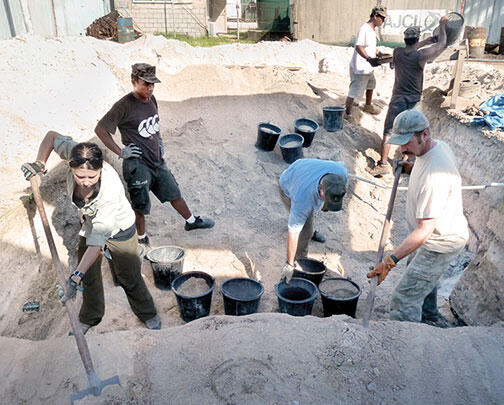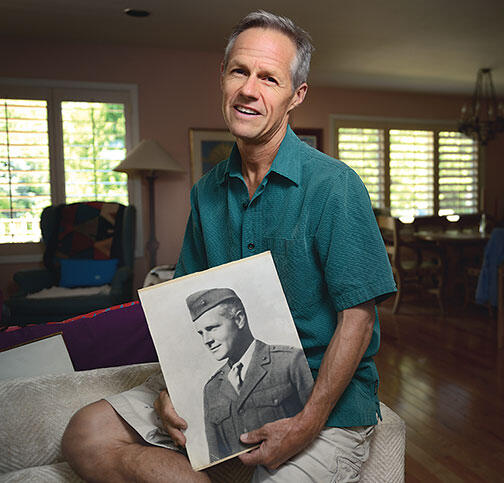Coming Home
 The remains of Marine 1st Lt. Alexander Bonnyman Jr. ’32 were found last May.
The remains of Marine 1st Lt. Alexander Bonnyman Jr. ’32 were found last May.
More than 70 years after Marine 1st Lt. Alexander Bonnyman Jr. ’32 was killed during World War II, his remains have been discovered on Tarawa, an atoll in the South Pacific. Bonnyman, known as Sandy, was posthumously awarded the Medal of Honor for leading an attack on a Japanese bunker during the 1943 battle of Tarawa, a 35,000-man assault that faced unexpectedly fierce Japanese resistance.
Bonnyman and 500 other Marines killed in the fighting were buried in temporary gravesites that could not be located after the war, though the Bonnyman family was told later that he had been buried at sea. After years of research, a nonprofit group called History Flight uncovered the graves in a densely populated area last May.
When archaeologists opened the trench, Bonnyman’s grandson, writer Clay Bonnyman Evans, was there. The search for the grandfather he never knew “has been my little Moby Dick,” says Evans. “There have been so many false alarms. In archaeology, 10 feet is a million miles.” To access the gravesite, “we had to jackhammer out concrete and rebar,” he says.
The archeologists made preliminary identifications of the 36 men in the trench based on dog tags. When they unearthed a tall man, “I dropped my camera,” Evans says. “I thought, ‘We might really find him!’ I’d never allowed myself to feel it.” A forensic dentist identified Bonnyman through his extensive dental work.
In July, the Marines’ remains were flown to Hawaii, where the Defense POW/MIA Accounting Agency laboratory was to confirm identifications. Bonnyman’s remains will be in dress blues for the funeral Mass and burial at the family plot in Knoxville, Tenn., which is planned for Sept. 27. His daughters Fran Evans, who is 81, and Alix Prejean, who is 74, along with four of his grandchildren, will attend, as will members of the Marine Corps.
Nephew Al Bonnyman ’78 says his uncle helped “save the lives of many others. Yet his family paid a price, and the pain still ripples through. My father [Gordon Bonnyman ’41, also a combat veteran] didn’t talk much about Sandy until he was close to death himself.” The inscription on Bonnyman’s grave marker reads “buried at sea.” It is, says Evans, “a poignant headstone that we’ll leave there.”
The Latest
See all







